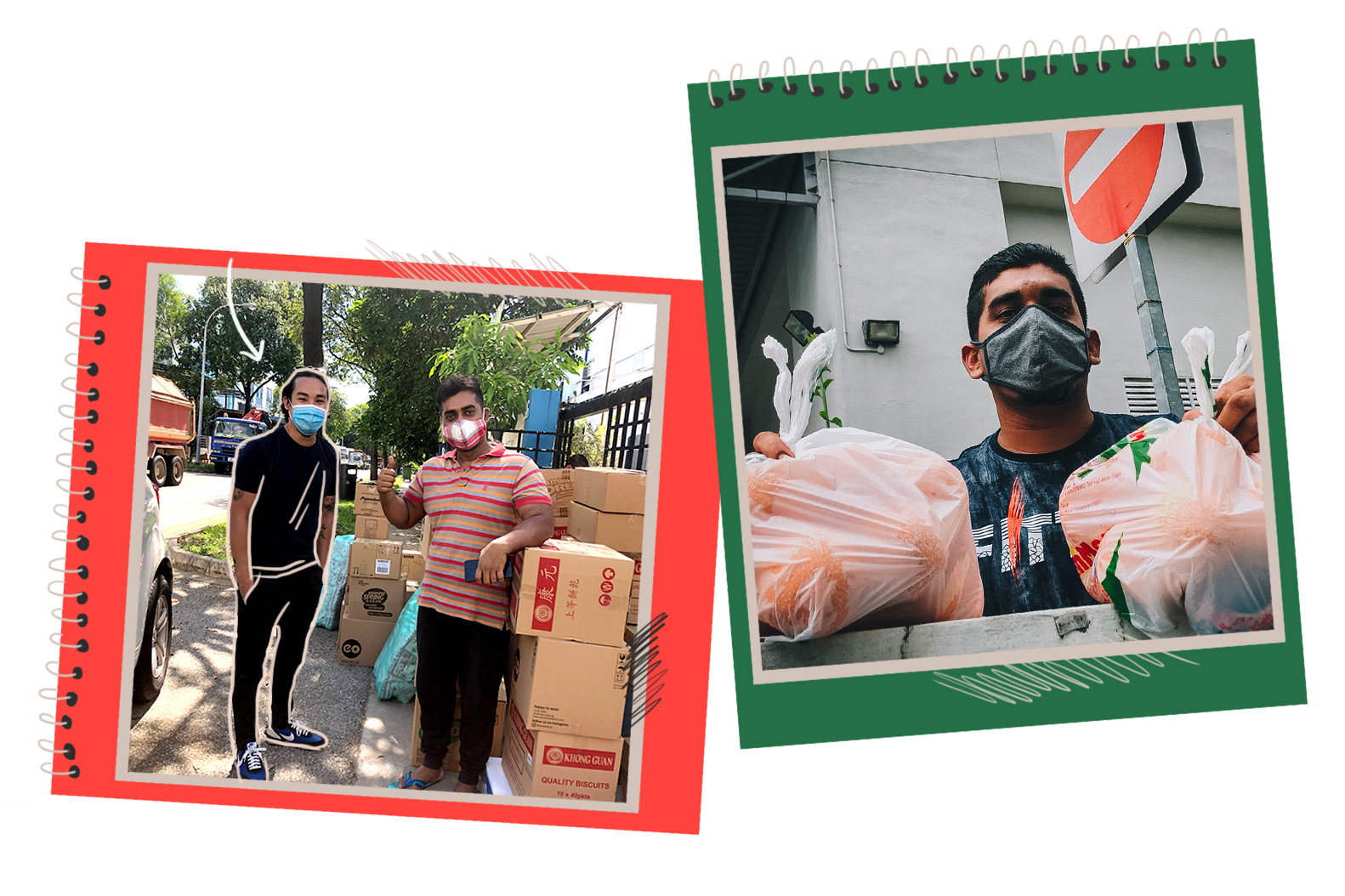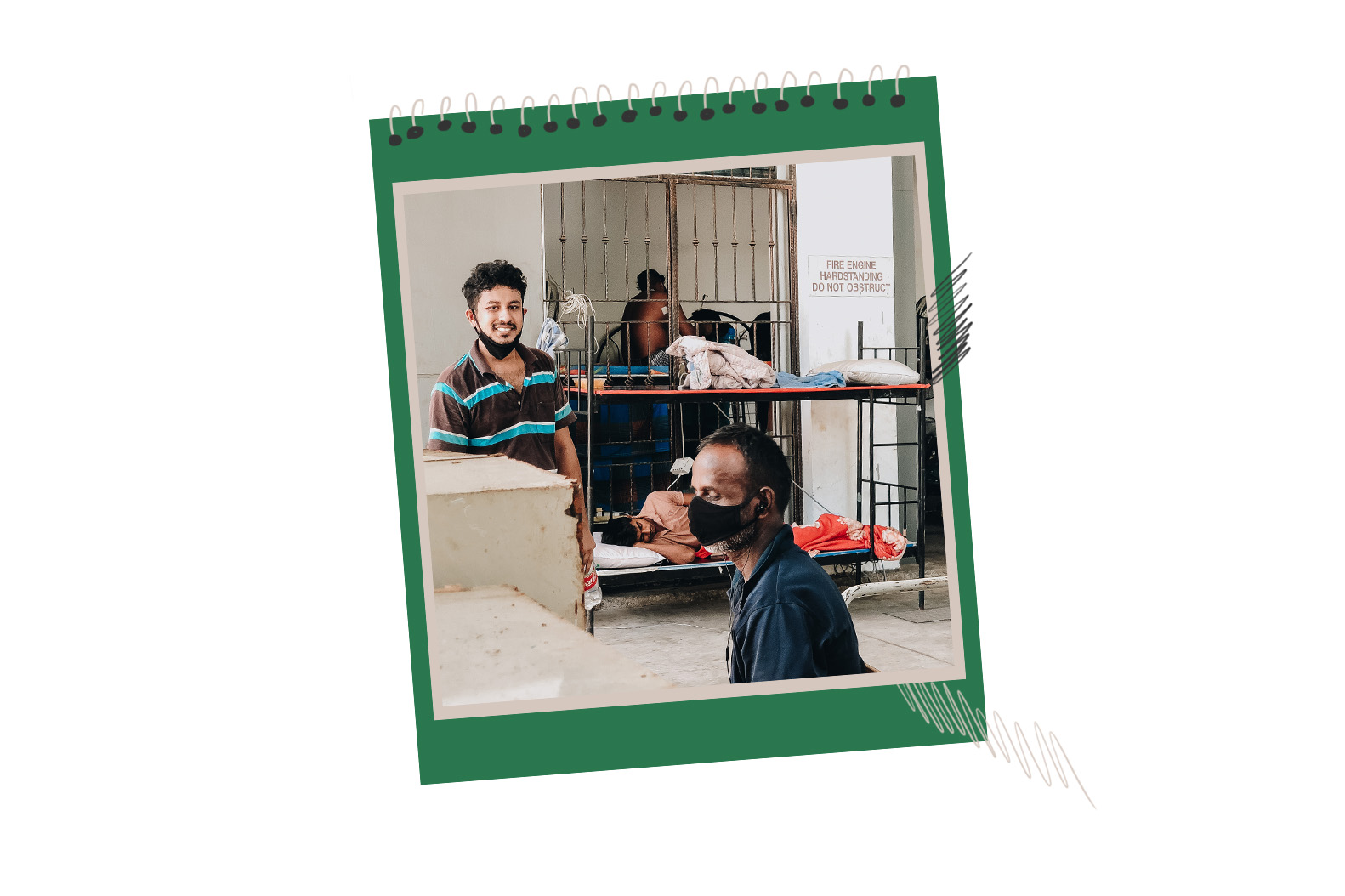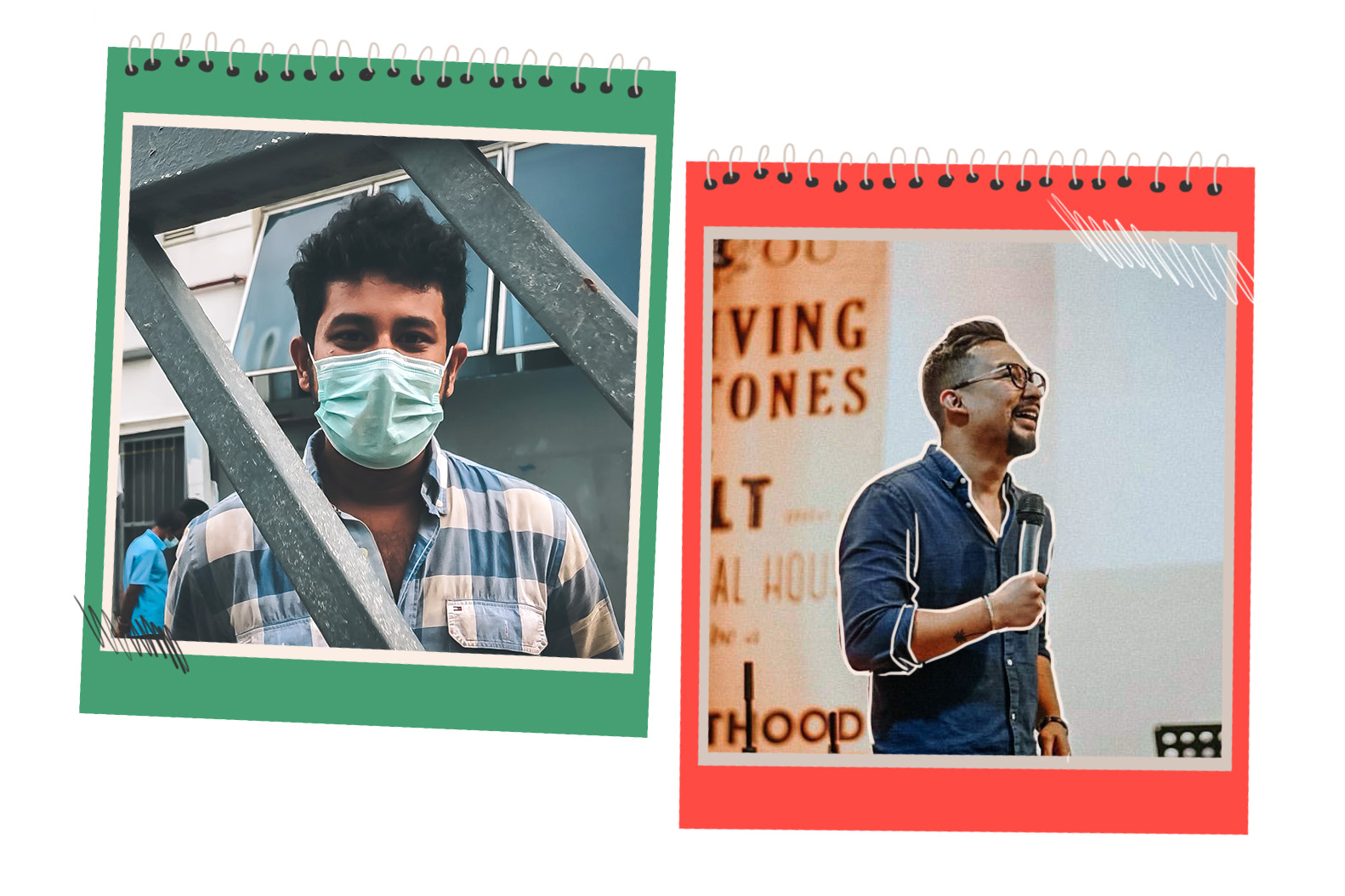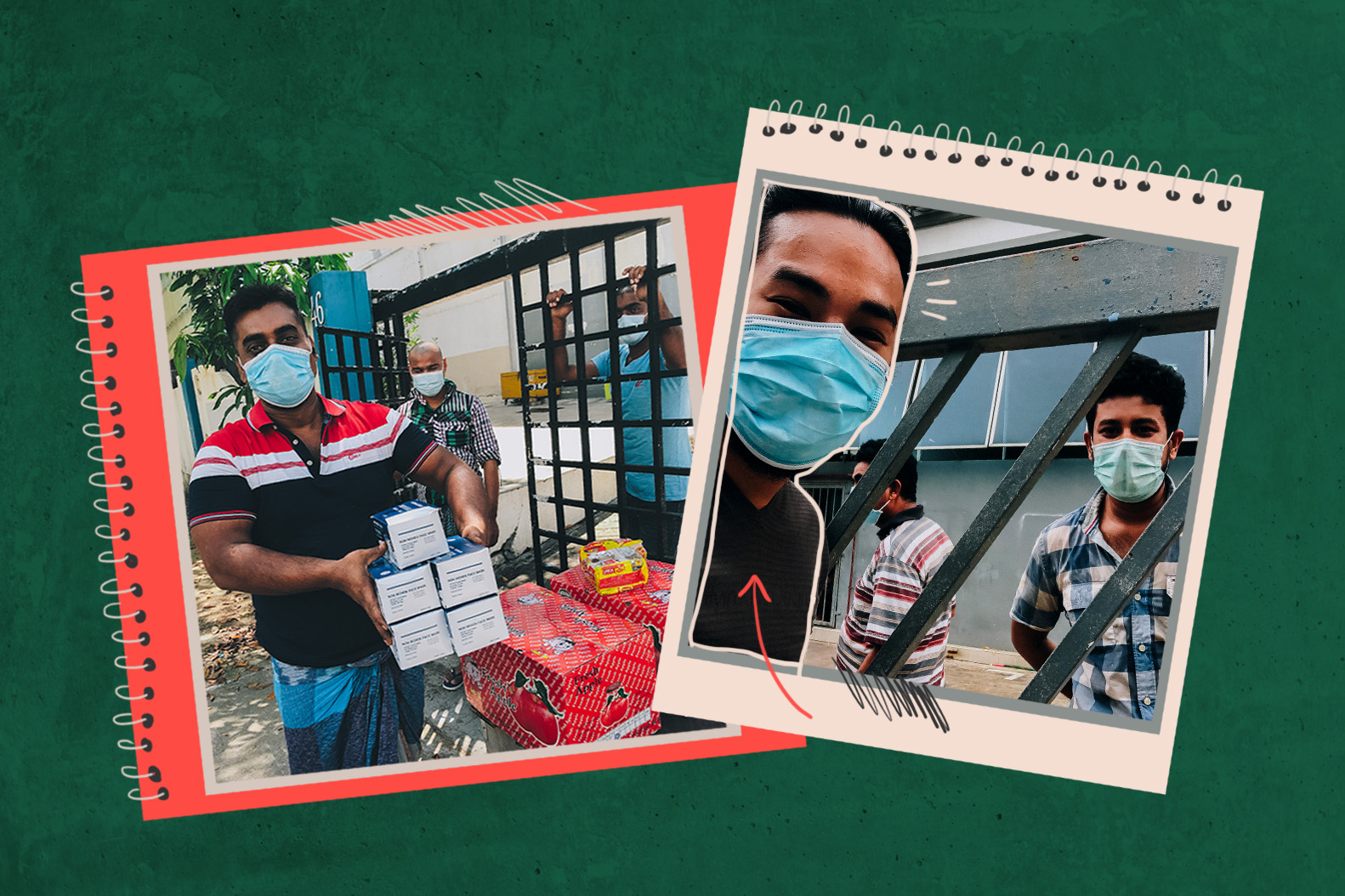For many, a usual day in the circuit breaker would probably consist of spending time at home or going to the supermarket to run errands. But not for Samuel Lim.
It all began on a Saturday, a few days before the circuit breaker was implemented. Together with other pastors, Samuel joined Hope Initiative Alliance (HIA) to help distribute masks to migrant workers.
But what was supposed to be a one-off volunteer session turned out to be something Samuel would continue doing for two months. The very next day, the 30-year-old pastor decided to rent a car and set off with meals in search of migrant workers he could help.
On most days, you’ll find Samuel driving across the island to deliver food to eight factory-converted dormitories (FCDs), reaching out to nearly 1,000 men.


“Growing up in the suburbs of Australia, I faced some racism, which was difficult for me as a child. I had to fight through certain stigmas and this struggle was something I couldn’t forget.
“Remembering where I came from stirred in me a desire to advocate for the marginalised and to love my neighbour, whoever that may be,” shared Samuel. “I thought to myself that this is the moment to step in and make a difference.”
After his volunteer work with HIA, Samuel learnt that there were a lot of other migrant workers staying in lesser-known FCDs, who weren’t receiving proper meals every day because they were not allowed to leave their dorms. While larger purpose-built dorms received more attention and help, these smaller FCDs often fell through the cracks.
Before he befriended a few migrant workers who shared with him the exact locations of FCDs that needed help, Samuel was literally searching car parks and abandoned buildings to find such dorms. Since the circuit breaker, he has located 15 FCDs, which now have two meals a day supplied by HIA.
He explained: “Since I’d built up that trust and relationship, they sent me texts about their friends in other dorms. That’s how I located the bulk of the FCDs. I found that I managed to form genuine relationships with these guys – they sometimes just text me at midnight to ask how I’m doing and share what they’re doing.
“We’ve added each other as friends on Facebook as well and they’ll comment on my posts. Sometimes they even text me and ask if I can come down because they’re feeling depressed. These relationships that were formed are not by my own effort at all. I feel like Jesus’ love is just coming through me as I see these guys as my brothers.”
 Aside from ensuring the migrant workers have proper meals through the care of HIA, Samuel has also been delivering fruits and snacks to the FCDs on his own – an effort that has been supported by his church which came together to raise money that went towards the purchase of these goods.
Aside from ensuring the migrant workers have proper meals through the care of HIA, Samuel has also been delivering fruits and snacks to the FCDs on his own – an effort that has been supported by his church which came together to raise money that went towards the purchase of these goods.
“It’s a pretty cool story of how God provides,” Samuel shares, “A friend of mine, Vinnie, reached out to me and said that he could offer to sell me fruits at wholesale prices the very same day a (migrant worker) had shared with me how much he and his friends really love fruits.
“That same day, another friend of mine, Danny, who’s an accountant, volunteered to help with the collecting of donated funds. I’m not a numbers guy at all, so this friend really helped organise and sort out all the necessary things for the fundraiser.”
Samuel recalled how he had also ended up in the wrong dorm while doing a delivery that day. While waiting for the food to be picked up, he saw another worker nearby and felt prompted to strike up a conversation, which led to a new friendship.
“He told me his name was Alamin, and I was surprised to discover that he could speak really good English! Since getting to know Alamin, he’s helped me translate messages, making communication with other migrant workers much smoother, especially for when I receive tip-offs on FCD locations,” he recounted.
Samuel said that the fact that these three divine encounters all happened on the same day could only have only been because of God.
“I had asked God whether we should find more dorms and to me, this was a resounding ‘yes’. We decided to provide meals for this dorm I accidentally went to as well,” he added.
https://www.youtube.com/watch?v=LVZYAF4EELE
Over the course of this circuit breaker, Samuel found himself not only building bonds with the workers he came to befriend, but also being humbled.
He recounted how one migrant worker told him he had studied electrical development in Singapore, but didn’t have enough money to complete the full course, revealing that his wage had not increased at all in the 15 years he’s been working here.
The migrant worker also shared that he was using the money he had earned to give his son a good education so that the latter would have other job options in the future.
Samuel said: “These guys have dreams and it’s all alive in their hearts. It seems like an obvious thing, but to me it was eye-opening. From seeing them as guys across the fence, their personalities converged into one, to seeing them as having individual dreams and desires to advance their lives and the lives of their families.
“It was a humbling moment for me because each dorm has over 100 guys – all with their own dreams and families – and it’s that thought of how you’re not going to be able to meet every single need.”
Convinced that others should also hear about these dreams, Samuel decided to put together a video, which he has shared on his own YouTube channel.
https://www.youtube.com/watch?v=fTNIYTotvSY
These encounters have also made Samuel realise that he doesn’t just want to stop offering help once the circuit breaker is over.
“During a conversation with one (migrant worker) friend, it hit me how important these friendships are. We were just talking about dreams and then he grew quiet for a while. He then looked up to me and said, ‘bro, please don’t forget me when the circuit breaker is over.'”
That’s why when the “new normal” sets in, Samuel plans to hold English classes, cricket tournaments and even organise events where people can invite these migrant workers over for dinner.
“The reason we built relationships with eight dorms and not 25 is so that we can manage these relationships effectively. We want to genuinely help them develop skills so that they can advance in their lives.”

Sharing that he has been heartened to see so many churches stepping up to help this community during the circuit breaker, Samuel said: “It’s unprecedented – we now see hundreds of churches reaching out to dorms and truly loving the previously neglected migrant worker population.”
But even for those who have not been able to deliver food, donate money or be involved in any migrant outreach efforts so far, Samuel has this word of encouragement: Play a part by simply changing the narrative. Break stigmas and discrimination. Help integrate migrant workers into our society with the gifts we already have.
He said: “The world is the limit. We can create music or start our own YouTube channel. We can create awareness through videos and social media posts. Or if you’re into sports or even psychology, if you just want to be a friend, that’s a good place to start too.”
If you’re interested to help, there are more details on how you can contribute to these care meals at Giving.sg or Hope Initiative Alliance. Organisations and companies can also adopt a dorm, covering two meals a day.
- Pray for the migrant workers in Singapore – for their health (many are struggling emotionally too), jobs and families back home.
- Pray for the volunteers who are helping this community – for their health, safety and own needs too.
- Ask God if He is showing or telling you something specific when it comes to loving your neighbour.









